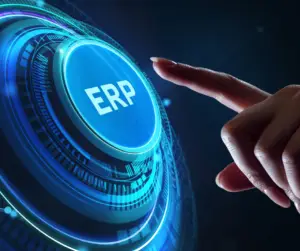MORE than half of more than 1,000 supply chain professionals worldwide surveyed recently by the Materials Handling Institute (MHI) and Deloitte said they are planning to increase or substantially increase their investments in cloud computing and storage to make supply chains more resilient.
The 2021 MHI Annual Industry Report also found that companies that were already on cloud supply chain platforms before the start of the COVID-19 pandemic were able to establish new channels to meet customer needs and to quickly scale up to satisfy exponential growth in e-commerce demand.
In an interview with Supply Chain Drive, Suresh Acharya, a professor at the University of Maryland Robert H. Smith School of Business, compares supply chain companies to drivers who went from using paper maps to apps like Google Maps and Waze.
They all get drivers from point A to point B, but apps are constantly using new information about things like accidents, construction and weather to tell drivers which way to go to save time, and frustration.
“We are really comfortable with real time information that they’re able to ingest to make a real time decision,” Archarya says. “That’s the kind of transformation that supply chain is going through.”
Like with most technologies, cheaper prices and better products have put cloud and cloud storage within reach.
In the same article in Supply Chain Drive, Rob Wood of the NCC Group says that in the past, companies would have to host their own cloud computing platforms or storage.
“You had to have entire teams maintain those systems,” he said. “Cloud [technology] has made them unnecessary. Instead of having to build my own servers and stand them up and run them, you can go outsource that.”
Storage in cloud technology has also matured, allowing companies to get a “control tower” view of their supply chain, Archarya says. They are “able to really see and understand and get insights about the supply chain in real time,” he said. That has enabled supply chain professionals to get a better understanding of their entire supply chain, and make decisions based on it.
The next gains in cloud and cloud computing in supply chain will most likely be broader use of cloud computing, which can take in real time data, and make real time decisions on it. Just like Google Maps and Waze can spot trouble up ahead and map out a new route, optimized supply chain cloud platforms can take information on things like shipment delays, weather, geopolitics, subcontractor woes and anything else that would affect the supply chain, helping supply chain professionals make more real time decisions.
“If there is some kind of issue with a warehouse, can I then have that shipment maybe go to another warehouse or at least be able to delay it,” Acharya said. “These are the kinds of supply chain things that help get supply chain to the next level of efficiency, and that’s what we’re seeing with the cloud.”
He also believes that the sharing of this information between manufacturers and retailers will become more common, in part because it can improve supply chains, but also because younger generations just share more.
“We’re going through a technology shift but we’re also seeing a generational shift,” he said. “That will start to permeate the workforce as well, where retailers will open up because they will find sharing that information is mutually beneficial. It’s not a zero sum game.”
Source: https://www.supplychaindive.com/news/cloud-computing-storage-scale-supply-chain/609408/





